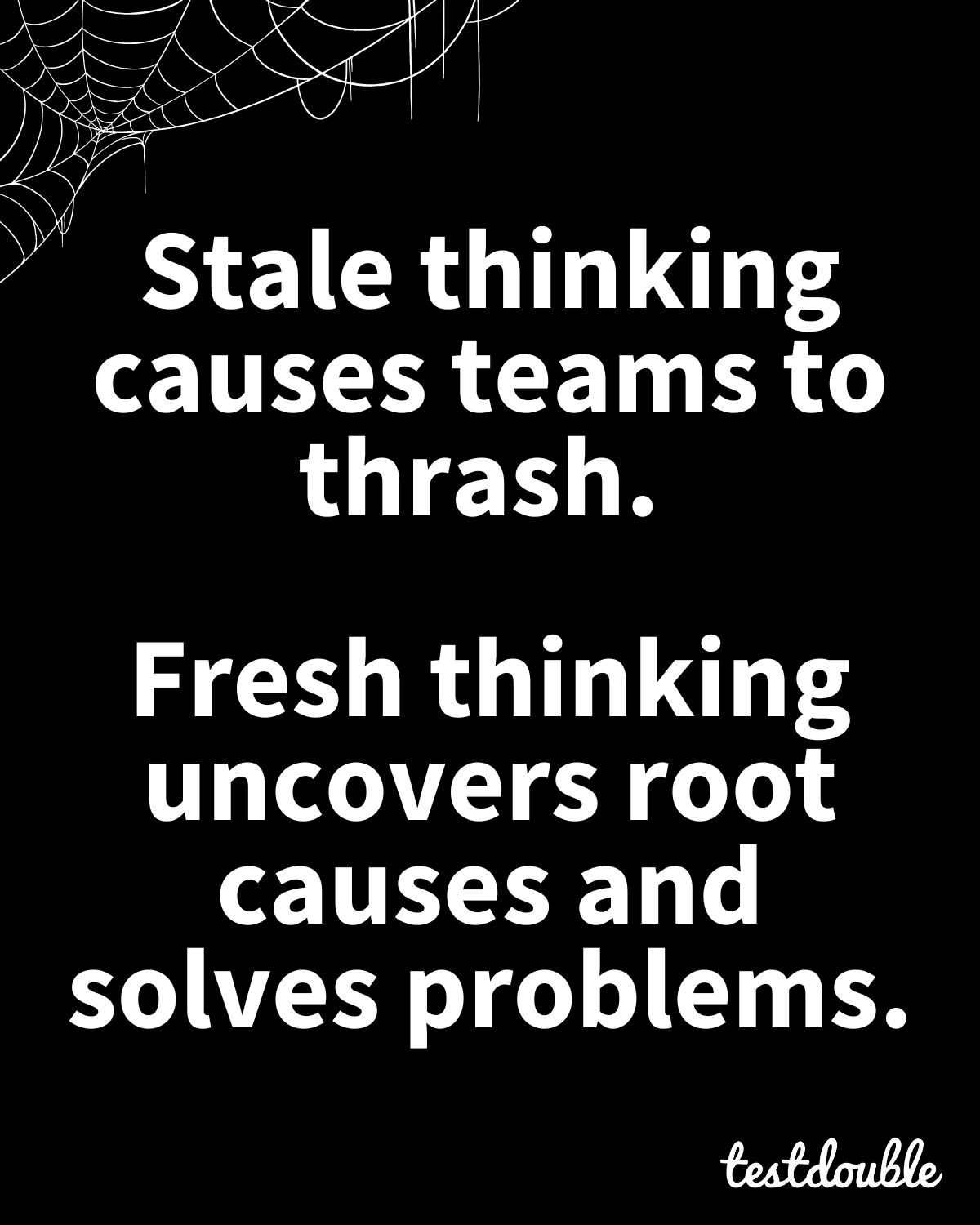What if the key to unlocking ROI in your software projects isn’t more code, but better decisions?
Product managers (PMs) are the unsung heroes of high-performing teams. They’re not project managers or product owners—they're strategic operators, laser-focused on reducing risks, validating assumptions, and driving business outcomes. Think of them as the brainpower behind better software delivery and stronger ROI.
Despite the rise of product management courses at top-tier schools like Harvard and Kellogg, many companies still miss the mark on leveraging product managers effectively.
“There are more misconceptions about product management than there are correct answers,” says Brett Buchanan, Chief Product Officer at Test Double.
If your software projects feel sluggish or misaligned with business goals, it’s not a code problem—it’s a product problem. A skilled product manager translates user needs and business objectives into clear, actionable priorities, ensuring your technology investments aren’t just sunk costs but value generators.
Product managers aren’t project managers, product owners, or mini-CEOs
It’s easy to confuse a product manager with roles like project manager or product owner. But each plays a distinct part:
- Product managers define the “what” and the “why.” They align product strategy with business goals and own the product's outcomes.
- Project managers focus on the “how” and “when,” ensuring smooth execution. They manage timelines and tasks to deliver efficiently.
- Product owners keep Scrum teams moving by prioritizing the backlog and creating actionable user stories.
Critically, a product manager doesn’t dictate solutions. Their superpower lies in collaborating with cross-functional teams to uncover the best answers through continuous discovery. And no, they don’t have the authority to hire or fire—though they do influence strategy at the highest levels.
So, what exactly is a product?
Spoiler: It’s not a list of features.
A product is anything that solves a user’s problem, drives KPIs, and advances business outcomes. That could mean:
- Physical items—iPhone, Kindle, Coca-Cola
- Software platforms—Etsy, Instagram, Gusto
- Internal tools—Salesforce CRM or custom inventory management systems
The better question is: Does this product drive measurable business value? If so, it’s a playground where product managers thrive.
Why you need product managers: Reduce risk, increase impact
At Test Double, we’ve embedded product managers into teams at companies like Kroger, Lowe’s, Levi’s, and Mailchimp, helping them get more from their software investments.
“Most companies invest heavily in technology but miss the return they hoped for,” says Buchanan. “A good product manager bridges that gap—maximizing your investment and cutting waste.”
Product managers act like conductors of the tech orchestra, harmonizing developers, designers, and stakeholders to create products that hit both user needs and business goals. Here’s how they do it:
- Validate assumptions to build the right thing—not just build it right
- Grow revenue or cut costs by aligning product outcomes with strategy
- Communicate seamlessly across departments to avoid silos
- Monitor competitors and market trends to stay ahead
- Prioritize with precision to deliver faster and on budget
Their success isn’t measured by how much they build, but by the impact they create.
Ready to unlock your product’s potential?
Test Double offers flexible product consulting—whether you need burst capacity for a big initiative or coaching for leaders managing product strategy through change.
And we’re offering 30-minute turbocharged sessions with a product leader—completely free, no strings attached.
No fluff. No jargon. Just clear insights to help you unlock the next level of product performance.
Request your free session now.













